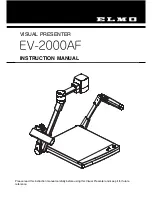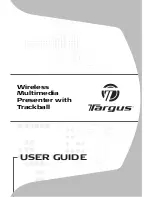
12
Dual Slot Media with Media Transfer Capability
The CAMEDIA E-10 Zoom SLR comes with 32 Mb of
SmartMedia but the E-10 also provides media capabilities
like no other camera on the market for under $4,000. It has
the capability to accept SmartMedia and CompactFlash Type
II cards simultaneously. But Olympus has even gone a step
further. Now the user can transfer images from one type of
media to the other, in-camera. Let’s say for example you have
both SmartMedia and CompactFlash but you only have one
type of card reader for the PC. You can transfer your images to
the PC from the type of media without the card to the type of
media with the card and keep on shooting.
RAW
30
Bits of Color
For those professionals with discriminating requirements in
image quality, Adobe Photoshop 5.0 LE comes bundled with
the CAMEDIA E-10 Zoom SLR, which allows you to import
RAW 30 bit color images produced by the E-10 directly into
Photoshop so there is no loss of bit depth. This allows users
to output to the highest possible quality level with the maxi-
mum amount of data.
Joel Meyerowitz - ©2000
Seven Step White Balance from 3,000 Kelvin
to 7,500 Kelvin
There are two modes for setting the white balance on the
CAMEDIA E-10 Zoom SLR, an Auto White Balance and a One
Touch manual White Balance and seven preset White Balance
settings, which range from 3000 Kelvin to 7500 Kelvin. When
using the Auto White Balance you can be assured that your
images will be accurately color corrected for prevalent ambi-
ent light conditions. For those that crave greater control there
is the Seven Preset White Balance settings, which allow for
more creative process. For example, if you’re in a situation
where you want to enhance a sunset, simply dial in a lower
Kelvin setting than 5500 Kelvin. Or if you want to warm skin
tones, dial in a lower number. Or you can change the setting
and use cross filtering on the camera’s strobe for even more
dramatic effects.
Walter Urie adds, “I tend to use the white balance not to bring
the color back to normal, but to push the colors, to enhance
one or the other. And it works great for that. It’s much better to
do this process through the camera than to use filters. Just
warming skin tones for example or warming up skies. There
was one shot where I wanted to have an overly cool shadow,
like a moody blue kind of look. I dialed in a cooler color temp
and it work perfectly.”






































